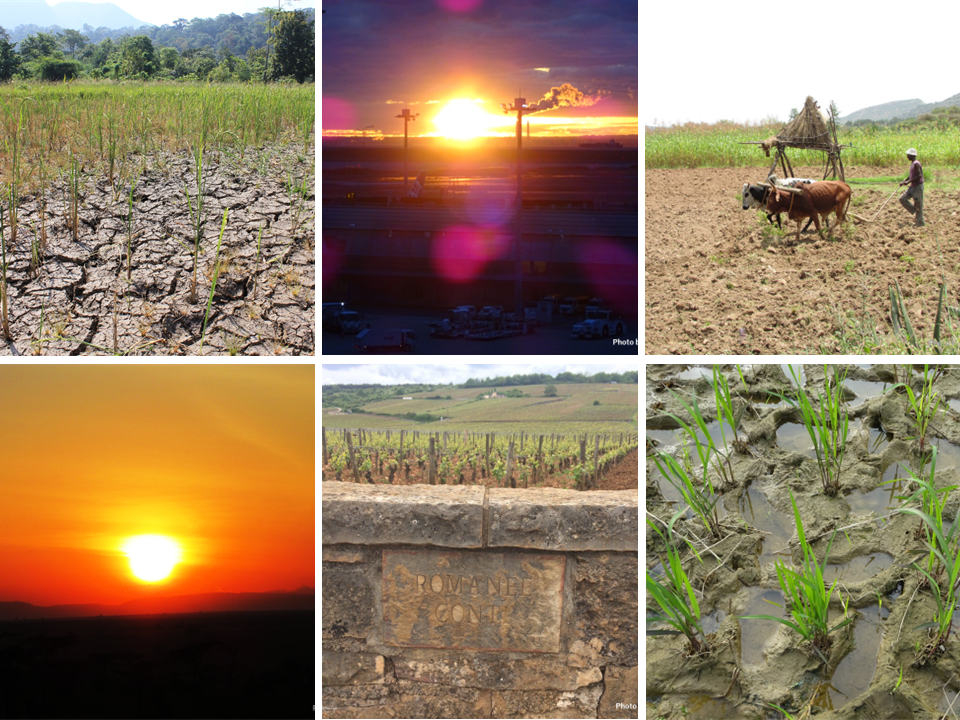Pick Up
1168. Looking Back on 2024

1168. Looking Back on 2024
Thank you for visiting JIRCAS Pick Up in 2024.
In today's Pick Up, we'd like to uncover the trends driving the opportunities and challenges facing food systems, based on the most accessed articles this year.
The article that attracted the highest number of accesses by far was the one on the UN World Population Prospects released in July. The world's population, which is about 8.2 billion as of 2024, will peak at 10.3 billion in the mid-2080s, with significant regional heterogeneity in demographic patterns. Some developed countries such as Japan have already entered a phase of population decline, while others are still projected to experience a doubling of their populations in the coming decades, raising the challenge of optimizing resource allocation in promoting sustainable development.
1059. World Population Prospects 2024. https://www.jircas.go.jp/en/program/proc/blog/20240712
Reports on food security and food crises also attracted accesses.
1010. 2024 Global Report on Food Crises https://www.jircas.go.jp/en/program/proc/blog/20240502
1070. The State of Food Security and Nutrition in the World Report (SOFI) 2024 https://www.jircas.go.jp/en/program/proc/blog/20240730
According to SOFI, the proportion of people facing undernutrition in the world has remained high for three consecutive years after a surge in the wake of the COVID-19 pandemic, with 713 million ~ 757 million people, or one in 11 people worldwide, facing hunger as of 2023. Drivers, such as climate change, conflicts, and economic slowdown, are casting a shadow over the efforts to achieve zero hunger or SDG2 by 2030.
News on record heat and historical levels of GHG emissions have also attracted attention. 2024 may break the hottest year recorded in 2023, attributed not only to El Niño which lasted from last year to early this year, but also to anthropogenic climate change.
997. Greenhouse Gas Emissions and Climate Policy in 2023
https://www.jircas.go.jp/en/program/proc/blog/20240412
1100. Summer 2024 Was the Hottest Ever https://www.jircas.go.jp/en/program/proc/blog/20240918
994. Atmospheric Concentrations of Anthropogenic Greenhouse Gases Continued Steady Rise in 2023 https://www.jircas.go.jp/en/program/proc/blog/20240409
1135. 2024 Is Expected to Be the Hottest Year in Recorded History https://www.jircas.go.jp/en/program/proc/blog/20241111
In fact, under climate change, extreme weather events such as heat waves and floods have been more frequently reported around the world in 2024, as compared to last year, with negative impacts on production of some food commodities due to several factors, such as the emergence of pests and diseases and shifts in suitable production areas.
998. Climate Change and Chocolate https://www.jircas.go.jp/en/program/proc/blog/20240415
992. The Impact of Climate Change on Wine Production
https://www.jircas.go.jp/en/program/proc/blog/20240405
In summary, the 2024 Pick Up popular articles highlight trends that would influence global food security and food systems, such as global population growth prospects with regionally heterogeneous demographic patterns, the impacts of conflicts and economic slowdown that would hinder the achievement of zero hunger, and the emerging observation of adverse impacts of climate change on food production. Against this backdrop, this year, JIRCAS hosted events with partners to invite world-renowned experts who shared their strategies with audience for achieving global food security, based on their diagnoses on the current state and future of the food systems.
1145. FAO Chief Economist Special Seminar Archived Video Released
https://www.jircas.go.jp/en/program/proc/blog/20241125
1146. Symposium with Dr. Cary Fowler, 2024 World Food Prize Laureate: Archived Video Released
https://www.jircas.go.jp/en/program/proc/blog/20241126
Dr. Torero, FAO Chief Economist, introduced the G7 and G20 initiatives on global food security, demonstrating the cost effectiveness of anticipatory actions to climate and political shocks in achieving SDG2. In addition, he presented priority investment intervention areas and best practices to simultaneously address a range of environmental, food, and sustainability challenges in order to improve productivity and achieve a just transition to ensure the food rights of current and future generations.
In a world where climate change is accelerating, crop diversity and the conservation of genetic resources are essential for future plant breeding and crop improvement. Dr. Cary Fowler, winner of the 2024 World Food Prize, shared his experience of being a pioneer in conserving crop genetic resources and the rationale for launching an international initiative to unlock the potential of adapted crops and soils (VACS), the two foundations of resilient food systems.
In fact, in order to build a resilient and nutritious food systems in the era of global boiling, it is necessary to have scientific knowledge and institutions to utilize the diversity of genetic resources. At this year's JIRCAS International Symposium, JIRCAS and its partners, who have been conducting cutting-edge research in this field for a long time, discussed the opportunities and challenges of resilient genetic resources.
JIRCAS International Symposium 2024: Resilient Genetic Resources for Food Security in the Era of Global Boiling – Opportunities and Challenges for Conservation and Utilization https://www.jircas.go.jp/en/symposium/2024/e20241122_jircas
Extreme weather events caused by climate change and the outbreak of geopolitical conflicts in various parts of the world are adding to the uncertainty surrounding food systems. In order to achieve global food security, it is necessary to strengthen the collection, analysis, and dissemination of information to take anticipatory actions ahead of crises and shocks, and to take all-round measures through innovation, science-policy dialogue, and behavior change, in the context of promoting the nexus of biodiversity, water, food, and health.
International Symposium: Long-term Impacts of Climate Change on Global Food Supply and Demand and Food Security https://www.jircas.go.jp/en/event/2024/e20241205
In 2025, we plan to continue to disseminate information on the latest scientific findings on global food security. Pick Up will resume on January 6.
Contributor: IIYAMA Miyuki, Information Program
